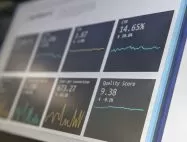Transforming Energy into Profits: The Intricate World of Energy Trading
The world of energy trading, encompassing a range of commodities like electricity, natural gas, and oil, presents a complex yet lucrative arena for traders and portfolio managers. This article explores the multifaceted nature of energy trading, portfolio management, and risk management, drawing insights from an online course taught by Felix Muscans, a professor of energy economics.
Understanding the Energy Trading Landscape
Energy trading involves buying and selling various energy commodities, including electricity, natural gas, and oil. These commodities are unique due to their grid-bound nature, necessity for real-time supply-demand balance, and limited storability. Seasonality and uncertainty, both on the supply and demand sides, add layers of complexity to energy trading.
Key Components of Energy Trading
- Prop Trading on Wholesale Markets: This involves trading energy on wholesale markets without owning assets or having final customers. The focus is on generating revenue through buying low and selling high.
- Retail Side Analysis: It encompasses managing an energy utility with a retail business, focusing on buying energy on the wholesale market and selling it to retail customers, like households and businesses.
- Generation Asset Management: This area looks at owning energy generation assets, such as power plants or wind farms, and selling the energy produced on the wholesale market. The course covers optimal operation and pricing strategies for these assets.
- Integrated Portfolio Management: This advanced topic examines entities that combine generation, wholesale, and retail operations. It’s relevant for large municipalities or integrated energy companies.
The Role of Risk Management
The course delves into the types of risk prevalent in the energy industry, notably credit risk and price risk. Effective risk management processes within companies are crucial for mitigating these risks and ensuring financial stability.
Practical Applications
The course provides practical insights for a range of professionals, from portfolio managers in energy utilities to large industrial consumers. Key takeaways include efficient procurement strategies, optimal operation of generation assets, and navigating the wholesale market dynamics.
Conclusion
Energy trading emerges as a dynamic field requiring deep understanding of market mechanisms, risk management, and strategic decision-making. As an intersection of economics, technology, and environmental considerations, it offers a challenging yet rewarding career path for those keen on shaping the energy landscape.










